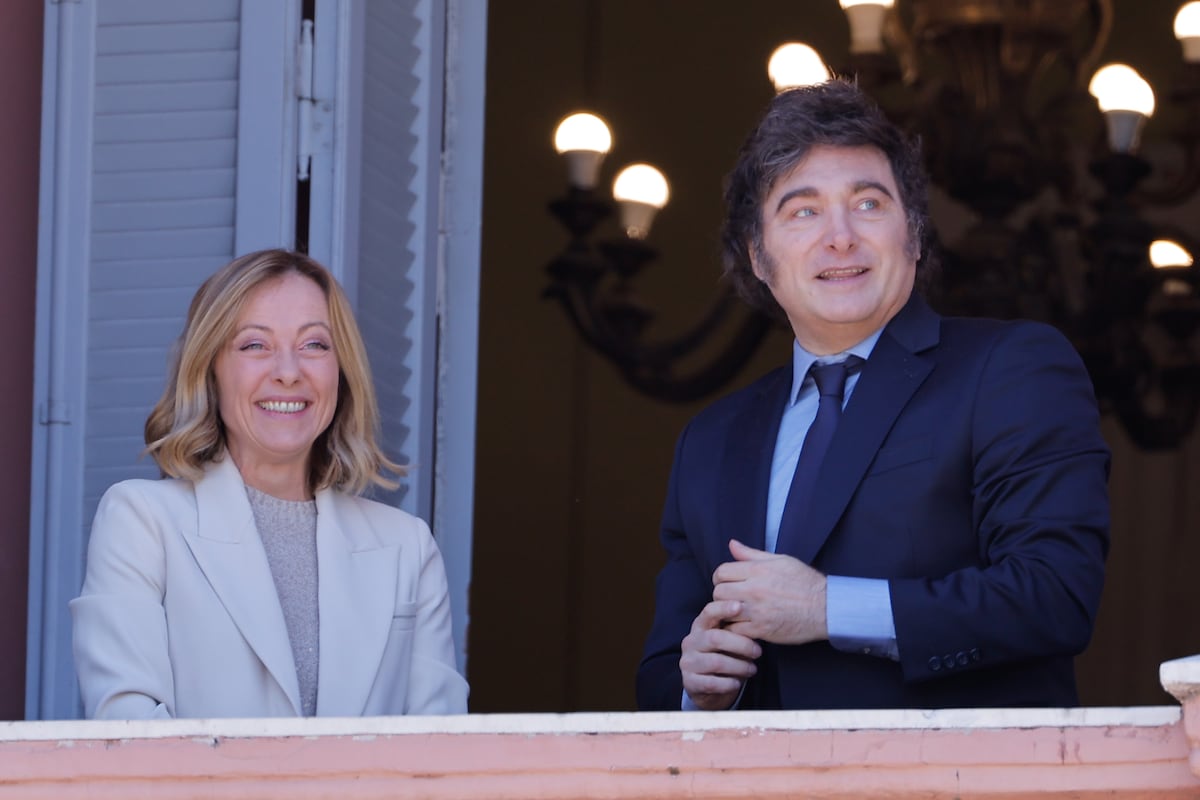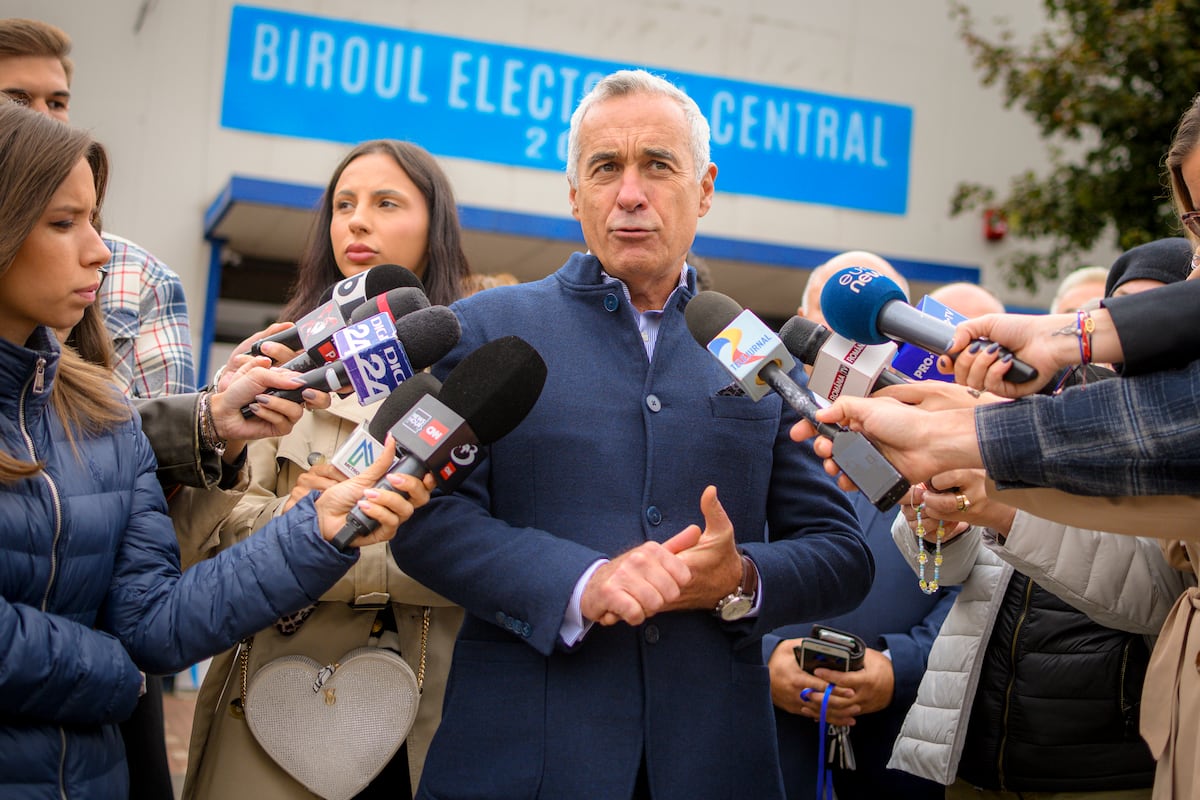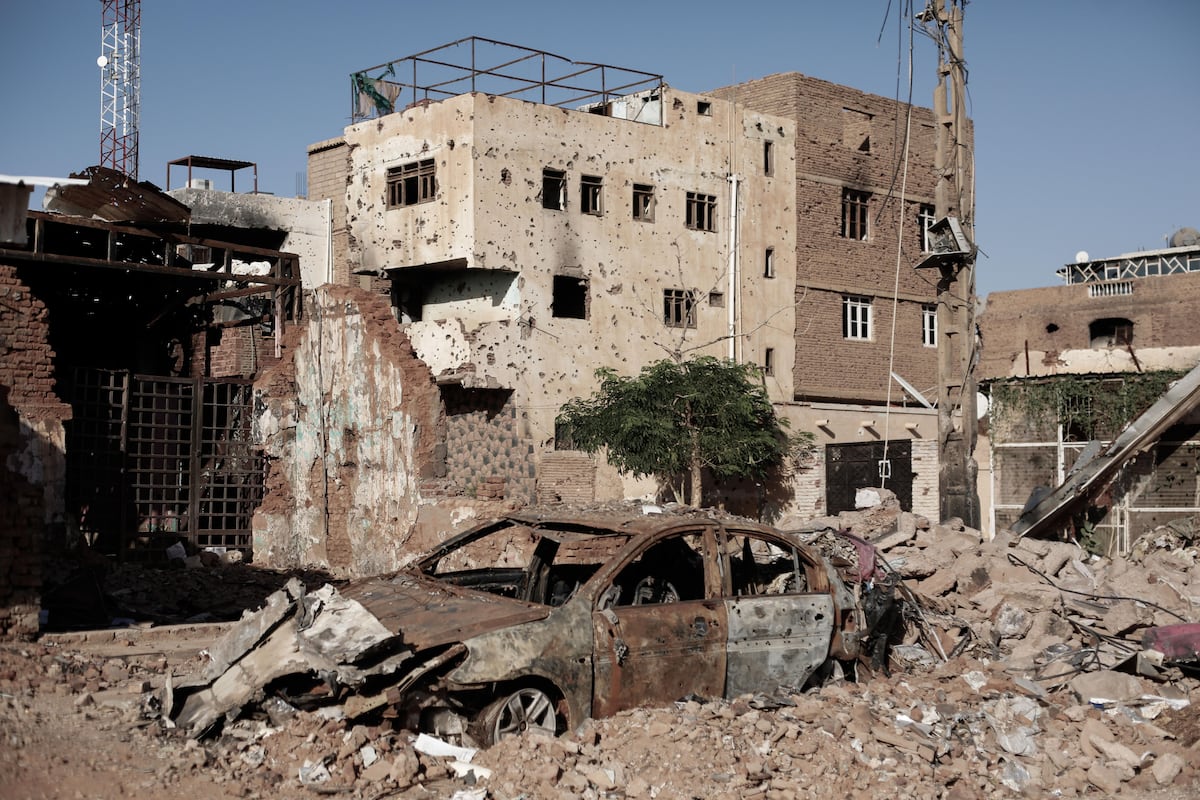The arrival of cold and bad weather has ended up completely derailing the start of the deportations of migrants to Albania by the far-right Italian government of Giorgia Meloni. Ships from North Africa no longer arrive on the island of Lampedusa and there are no people to transfer to the Gjäder internment camp, built by Italy in the last year. And since it is empty, because the only two transfer operations – in total, 24 people in a month and a half, of the 6,000 who have arrived by sea to Italy – have been annulled by the Italian courts, it no longer makes sense to keep it open.
All police officers, prison officers and administrative staff have returned to Italy, as confirmed by the Ministry of the Interior, which has specified: “It remains operational, staff varies according to demands.” Only seven employees of the cooperative that manages social and health care remain. In addition to the good weather, in spring, Meloni must wait for justice to rule on the legal obstacles that have aborted his plan. On the one hand, the Court of Justice of the EU, to which the Italian judges have turned to resolve the conflict between Italian and European standards. On the other hand, the Italian Supreme Court, which on December 4, in principle, must decide on the Rome Government’s appeal to the judicial rejection of the first deportation.
Meloni, who insisted on launching a plan with a showy appearance of propaganda towards his electorate, despite the obvious legal and practical difficulties it presented, has had to give up, for the moment, one of his star measures. After signing an agreement with Albania in 2023, the prime minister planned to begin deportations in May, then in the summer and, finally, in the fall. The delay in the construction of the internment camp caused the loss of months of good weather and greater arrivals of migrants, but the main obstacle came in October: a European ruling that, in practice, rendered the entire facility unusable. Albania model. It reduced the number of countries to whose citizens the controversial rapid protocol devised by Italy for asylum management and border rejection, the basis of the deportation plan, could be applied. Even so, Meloni decided to move forward and his strategy to get out of the impasse he has found himself in is to blame the courts, which argue that they have simply stopped the transfers following European regulations.
At the moment there is an unprecedented clash, almost worse than in Berlusconi’s time, between the Government and the judges. All the associations of magistrates, usually divided, have reacted unanimously to the attacks of the Executive, which accuses the courts of playing politics. Meloni’s latest move is quite unusual: since the judges of the immigration courts, specifically reinforced for these procedures, are rejecting his controversial rapid protocol for those deported to Albania, he intends to grant that jurisdiction to those of appeal. That is, see if changing the judge changes their sentences. But these magistrates, already overwhelmed with work, have also flatly rejected the idea.
Pending what happens on the open judicial front, the return of displaced personnel to Albania is not a surprise. The exorbitant spending in this aspect is one of the main reasons for criticizing the plan, because it represents the most expensive item, 180,000 euros per day. In the first reception center in the port of Shëngjin, an hour’s drive north of Tirana, and in the Gjäder camp, with capacity for 1,000 inmates, there were more than a hundred agents and employees killing time, with nothing to do. do, staying in a five-star hotel in this tourist area.
The approximate cost of Albania modelpraised by the European Commission and which many countries are looking closely at as a possible way to imitate, has been around two million euros since October 11, when the first deportation was carried out. If we consider that only 24 people have been transferred there, who also had to be sent to Italy a few days later by court order, the cost per migrant has been 85,600 euros, the Italian press has calculated. Compared to the 35 euros a day it costs in Italian reception centers. The initial budget for the entire operation is 635 million over five years.
In reality, the low number of people transferred arises from one of the basic problems of the entire plan, which the Meloni Government has underestimated by prioritizing the image blow: that in reality very few of the migrants meet the requirements to be sent to Albania. To respect international law, one must adhere to a tangle of requirements. Italy can only send to the Balkan country healthy adult men, who are not in conditions of physical or mental vulnerability, rescued in international waters by Italian flag ships. That is, it does not affect those saved by foreign NGO ships.
To select the right people, those who are rescued undergo a first examination on board the ship that goes to and from Albania. It is enough to see the result of the first results: the first transfer was 16 people, in a few days when 1,200 arrived in Lampedusa, and of those 16, two later turned out to be minors and two were in vulnerable conditions, they did not even reach the camp by Gjäder. The remaining 12 barely spent two days before a court ordered them to be sent to Italy. The same thing happened in the second transfer, of eight people: one was in critical condition and was transferred to Italy upon arrival.
The reason for the judicial decisions is that in reality the main obstacle to deportations is nationality: migrants must come from countries considered safe, that is, where human rights are respected. This is the key to the legal conflict. If they come from a safe country, they may be diverted to the controversial rapid protocol for handling asylum claims, because it is presumed that their applications will be rejected. The idea is to dismiss them in a matter of days, and not in one or two years, as occurs in the usual procedure, during which time they have the right to reside freely in Italy while awaiting the resolution of their file. He Albania modelIt is based on quickly resolving the asylum requests of deportees, who thus do not set foot in Italy, rejecting them and then expelling them to their country of origin. In any case, experts already warn that in any case the majority of those sent to Albania would end up arriving in Italy, because only 20% of the expulsions are carried out. It is another big loose fringe that the Government does not explain.
The key to the legal conflict: what is a safe country?
The biggest problem, in any case, is in the definition of what a safe country is. Because Italy says one thing and European regulations, interpreted by the Court of Justice of the EU, say another. Italy established a list of 22 countries that it classified as safe, which after the failure of the first transfer it reduced to 19. However, the European ruling of October 4 limited those safe countries to eight: Cape Verde and seven in the Balkans. That is, none of the main countries of origin of illegal immigration in Italy. It left out, for example, Bangladesh, Egypt and Tunisia, where the majority come from. The only 24 migrants transferred to Albania so far were, precisely, from Bangladesh and Egypt.
The EU court ruled that if there is an area in a country where basic rights are not respected, the entire country must be considered unsafe. The same happens if there is a group that suffers discrimination for reasons of sex, race, religion or political ideas. Italy, on the other hand, considers that it should be evaluated on a case-by-case basis at the time, not accepting the asylum request directly according to the country of origin. The Meloni Government considers these 19 countries safe: Albania, Algeria, Bangladesh, Bosnia Herzegovina, Cape Verde, Ivory Coast, Gambia, Georgia, Ghana, Kosovo, North Macedonia, Morocco, Montenegro, Peru, Senegal, Serbia and Sri Lanka .
Entering the usual asylum management channel does not mean that, once the request has been evaluated, someone from one of these countries cannot be expelled. But the key is the time spent studying the application. Meloni wants to do it in two or three days because that way he intends to expel these migrants from Albania and never set foot in the country. Because the truth is that, frequently, by the time an asylum request is rejected, the applicant loses track of himself in Italy or another European country. And even if he is arrested, repatriations are very difficult and there is no choice but to leave him in the country, illegally. Until the next regularization.








